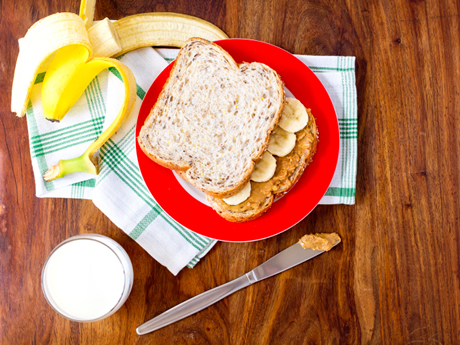 Nutrition choices for an endurance runner (or any endurance athlete) can be the difference between a successful PR (personal record) and the disappointment of falling short. Here are some keys to fueling your body for that next race day PR.
Nutrition choices for an endurance runner (or any endurance athlete) can be the difference between a successful PR (personal record) and the disappointment of falling short. Here are some keys to fueling your body for that next race day PR.
Daily Training Considerations
- Consume adequate fuel day-in and day-out. Calorie restriction is a common challenge because many runners (endurance athletes) are weight conscious. I really encourage people to adopt the “Food = Fuel” mindset. When daily calorie intake is inadequate, short-term consequences include decreased performance and fatigue. In the long-term, menstrual dysfunction, bone loss, injury, decreased endurance and strength, decreased immunity, micronutrient deficiencies, and decreased basal metabolic rate (BMR) can plague a runner who under eats.
- Ensure adequate carbohydrate intake. One of the biggest problems runners face is not eating enough carbs to fuel performance. Of the 3 available fuel sources (carbs, protein, and fat), carbohydrate is the primary energy source. Individual carbohydrate needs vary depending on training intensity and duration. See table below.
| Recommended Carbohydrate Intake (g/kg/day) | Activity Duration | Activity Intensity | Example: 130 lb female (59 kg) |
| 5 to 7 | 60 minutes | Moderate | 295-413 g/day |
| 6 to 10 | 1 to 3 hours | Moderate to high | 354-590 g/day |
| 10 to 12 | 4 to 5 hours | Moderate to high | 590-700 g/day |
- Ensure adequate protein. Endurance athletes have an increased need for protein. The recommendation is 1.2-1.4 grams of protein per Kg of body weight.
- Example: 130 lb female (59 kg) = 71-83 grams/day
- Don’t fear fat. Fat intake is necessary to sustain prolonged exercise. Fat should make up 20-35% of your total calories. Make sure to include healthy sources like nuts, avocado, fatty fish, and olive oil.
Pre-Race Objectives
Fueling to maximize muscle glycogen and ensuring optimal hydration are key leading up to your big event. A high carbohydrate meal (low fat and low fiber), can enhance performance when eaten 3-4 hours before the event. For a multi-hour race (like a marathon), 200-300 grams of carbohydrate is recommended at this pre-race meal.
During the Race
The main goal for during the race is to replace lost fluids, and consume carbohydrate to maintain blood sugar levels (for any run/race lasting >60 minutes). Glycogen (stored carbohydrate) can be exhausted after 1-2 hours of intense activity. So it is recommended that runners replace 30 to 60 grams of carb/hour. This can come in a variety of forms, including sports drinks, gels, bars, or honey sticks. Find what works for you by experimenting before race day.
Post-Race Objectives
The main goal after the race/run is to refuel and rehydrate. Both carbohydrate and protein are recommended in a ratio of 3:1. Aim for 1-1.5 g/kg carbohydrate within 30 minutes, and then every 2 hours for 4-6 hours after the race. For most people this equates to 60-90 grams of carbohydrate. Adding 15-25 grams of protein to this immediate postrace refueling will minimize continued muscle breakdown and stimulate muscle protein synthesis.
Article by Registered Dietitian, Katie Sonnek
